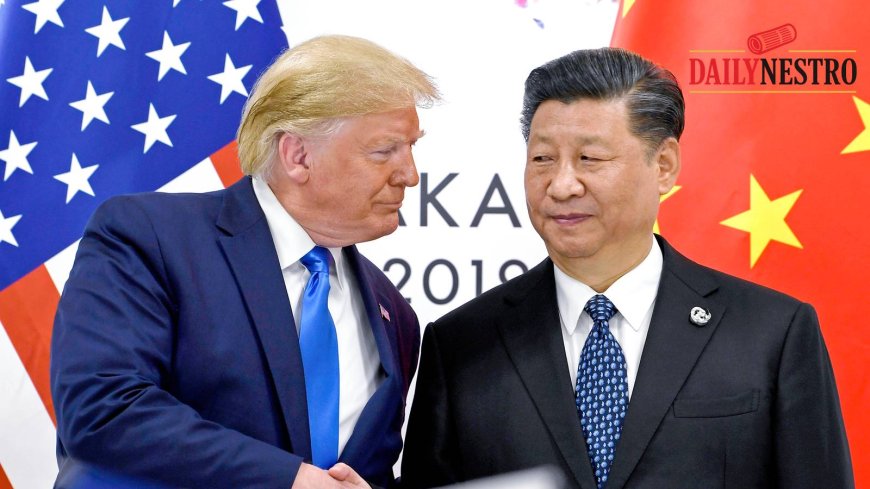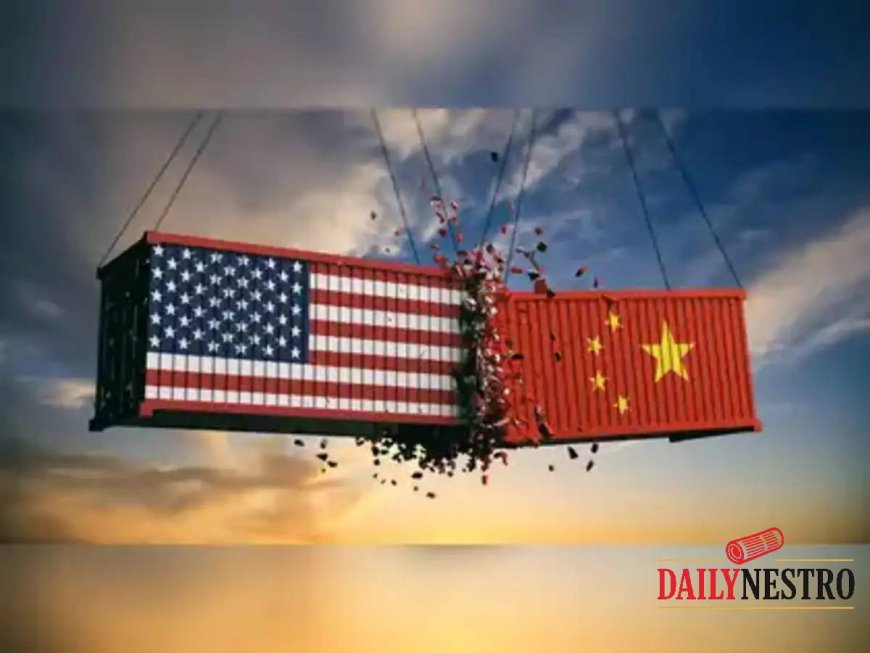Markets Cheer as U.S.–China Trade Talks Revive Amid Global Rate Decisions
Asian markets rallied on hopes of renewed U.S.–China trade talks ahead of major global rate decisions. Tech stocks surged, while African economies watch cautiously for ripple effects on trade and inflation.

Global markets started the week on an upbeat note, with Asian stocks rallying on renewed optimism that the United States and China may be edging toward a thaw in trade relations.
The rally, led by Hong Kong’s Hang Seng Index and Japan’s Nikkei 225, comes just days before crucial central bank meetings that could redefine the trajectory of global interest rates and in a month when technology and trade headlines have kept investors on edge.
Trade Tensions Ease Slightly
According to Reuters, U.S. lawmakers have expressed cautious approval of President Trump’s new trade proposal, which targets Chinese software companies but also opens a potential backchannel for broader trade talks.
Last week, the U.S. president threatened to impose a 100% tariff on all Chinese imports starting November 1, a move that rattled markets before talks between mid-level negotiators from both countries quietly resumed in Washington on Friday.
The Associated Press reports that the proposal includes a phased rollback of software restrictions in exchange for Beijing’s “market access assurances” in sectors such as cloud computing, AI, and semiconductors.
While the specifics remain unclear, the fact that both sides are speaking again has been enough to calm investor nerves, at least for now.
“Markets are reacting to hope, not resolution,” said Sarah Lim, Chief Market Analyst at DBS Singapore. “But given the global inflation picture, even a rumor of de-escalation feels like a relief rally.”

Stocks Surge Across Asia
Major Asian indices closed higher on Monday:
Nikkei 225: +1.8%
Hang Seng Index: +2.3%
Shanghai Composite: +1.2%
Kospi (South Korea): +0.9%
Investors also poured into tech and manufacturing shares, betting that easing trade tensions could reduce supply chain bottlenecks and import costs.
The rally carried over to European futures, with the FTSE 100 and DAX both up in early trading, signaling a positive open in U.S. markets later today.
Eyes on Central Banks
The optimism comes at a critical juncture for global monetary policy.
The U.S. Federal Reserve, European Central Bank (ECB), and Bank of Japan (BoJ) all meet this week to review interest rates amid a still-uneven global recovery.
Analysts expect the Fed to hold rates steady, while the ECB could hint at an earlier-than-expected rate cut if inflation data continues to cool.
In contrast, Japan’s central bank may tighten liquidity slightly to contain its weakening yen, a move that could ripple through Asian bond markets.
“October is shaping up as a make-or-break month for global liquidity,” said Peter Haynes, Global Strategist at Goldman Sachs. “If central banks signal coordination, we could see one of the strongest year-end rallies since 2021.”
Corporate Pulse: Tech Earnings and Layoffs
Back in the U.S., the market’s enthusiasm is tempered by concerns over tech-sector layoffs and earnings results.
According to Business Insider, companies such as Exxon, Starbucks, Oracle, Nike, and Scale AI have all announced layoffs in the past two months, citing cost-cutting measures in anticipation of a "slower Q4."
In the meantime, this week is when big tech firms like Apple, Microsoft, and Meta are expected to release their quarterly results. Analysts are watching for clues on how resilient consumer spending and cloud revenues remain amid shifting global policies.
Nigeria and Africa: Watching from the Sidelines
For emerging markets like Nigeria, these developments carry mixed implications.
While a stronger global risk appetite may attract foreign investment into African debt and equities, persistent dollar strength, combined with new U.S. tariffs, could keep import costs elevated for developing economies.
Local economists warn that Nigeria’s inflation, currently hovering near 27%, could worsen if global trade tensions flare again. However, any de-escalation could stabilize fuel and manufacturing inputs, improving local business margins.
“What happens in Beijing and Washington affects Lagos and Nairobi,” noted Obinna Eze, a trade analyst at Afrinvest. “Africa needs predictable trade flows to keep its economic engine running.”
As global investors parse every signal from Washington and Beijing, the consensus remains fragile:
Trade talks are tentative.
Rate decisions loom.
Tech earnings could swing sentiment sharply either way.
But for one brief Monday, optimism ruled, reminding the world that even amid uncertainty, markets still run on hope.
Sources:







